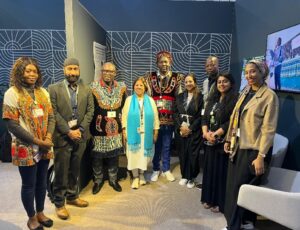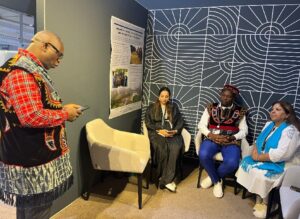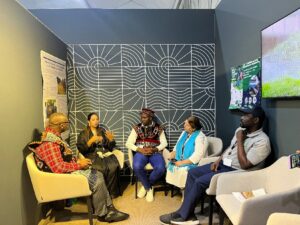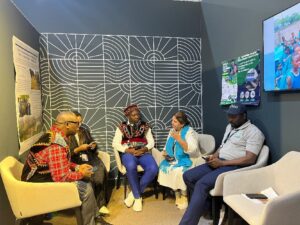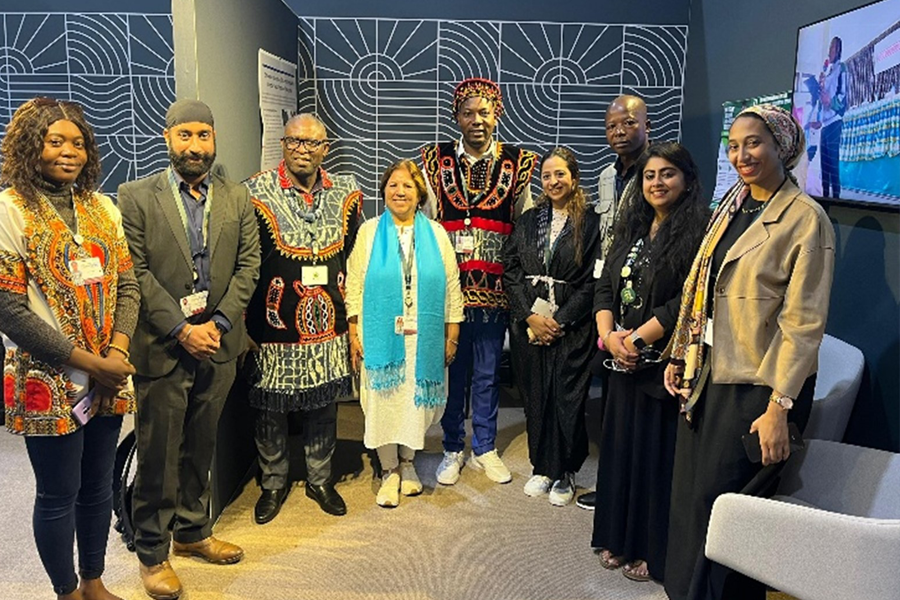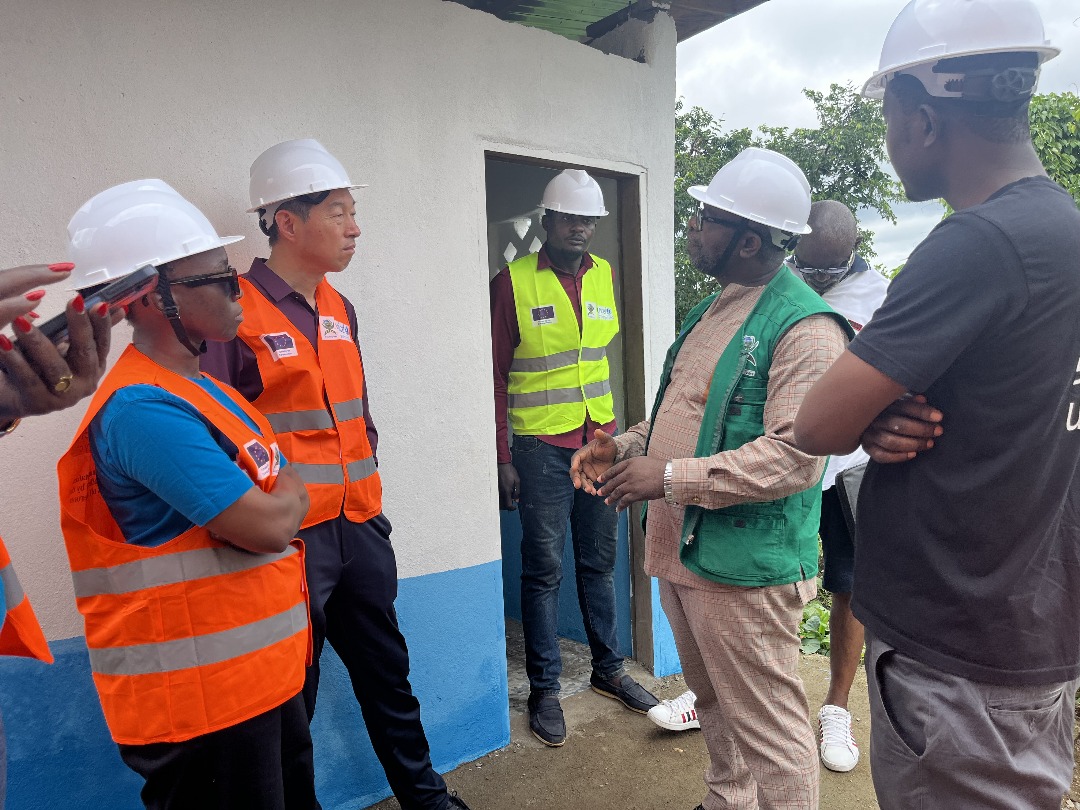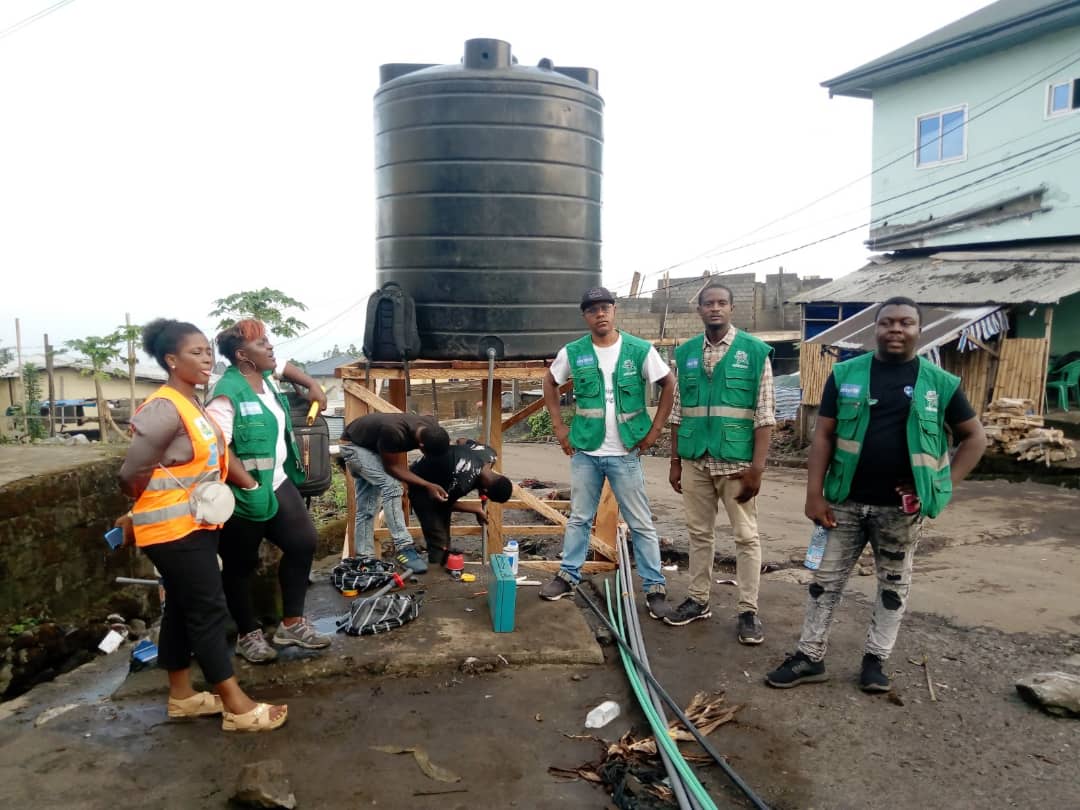Venue: EPDA (B13) Pavilion UNCCD COP16 RIYADH
Moderator: Tanda Godwin (EPDA)
Panelists
- Sunday Geoffrey (SUHUCAM)
- Riham Helmy (Envirox)
- Harrison Nnoko (AJESH)
- Dr. Meena Bilgi (Green Future Foundation)
- Francis (PCA ASMDE Relief)
Mr. Tanda Godwin (moderator)
Key Discussion Themes
The panel started with a background note to water sustainability and land management practices across the world water stressed areas and desert lands as follows:
Water sustainability and land management are critical global challenges, particularly in desert and semi-arid regions where water scarcity and land degradation threaten ecosystems, livelihoods, and human well-being. These issues are central to the United Nations Convention to Combat Desertification (UNCCD), which addresses land degradation neutrality (LDN) and promotes sustainable land and water use practices. The UNCCD cop 16 brings renewed attention to these challenges, fostering discussions and commitments to enhance resilience in the world’s most stressed ecosystems.
Within the context of Global Context of Water Scarcity and Land Degradation:
- Approximately 40% of the world’s land is classified as drylands, hosting over 2 billion people, many of whom depend on fragile ecosystems for agriculture and livelihoods.
- Desertification impacts 23% of global land, reducing productivity, threatening food security, and increasing vulnerability to climate change.
- Over 2 billion people live in regions experiencing high water stress.
- Global warming exacerbates water scarcity, especially in desert regions like the Sahel, Middle East, North Africa, and parts of Asia and Australia.
- Rising temperatures and erratic precipitation patterns worsen soil erosion, water shortages, and desertification, disproportionately affecting marginalized communities.
The panel discussions were then focused on responding to the practices of irrigation and land management practices and the challenges and local solutions related to irrigation and land degradation in India, Cameroon, Egypt and Dr Congo, with each panelist sharing insights and perspectives from their respective organizations and countries.
Panelist Perspectives
- Country perspectives
- Irrigation challenges in different African and developing countries
- Land degradation issues
- Potential mitigation strategies
- Regional water sustainability approaches
Recommendations from Panelists
- Focus on the context and cultural practices and leveraging on indigenous knowledge that trigger sustainable management.
- Women and children should be at the center of thinking actionable initiatives as they are the most vulnerable yet the women are the teachers and the children are the future
- More efforts should be put to carry out indebt scientific research on specific regional irrigation potentials and cultural practices which then inform policies, opens up for financial resource mobilization and integration of technology for which youth will be at the forefront.
- Explore collaborative approaches to land management
- Develop targeted strategies for water conservation
- Stablish the green school initiative across academia and in communities for a better youth fulfilled future.
Acknowledgments
EPDA extends its gratitude to the organizers, panelists, and participants for their invaluable contributions to this critical discussion. The outcomes of this event will inspire future actions and collaborations towards a more sustainable and inclusive future.
